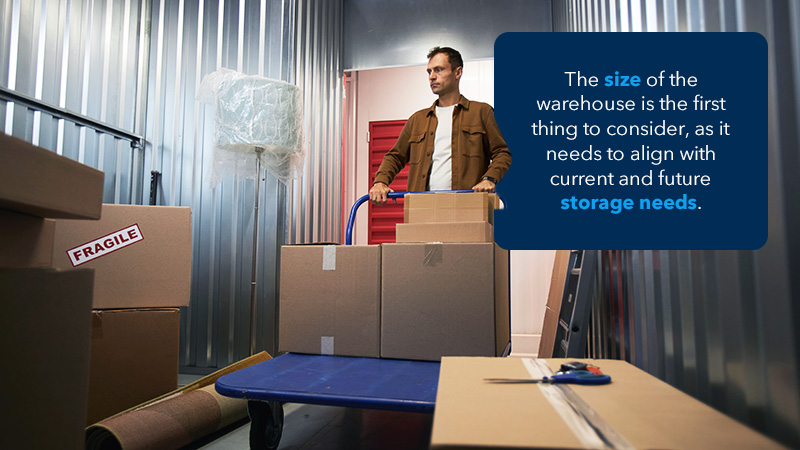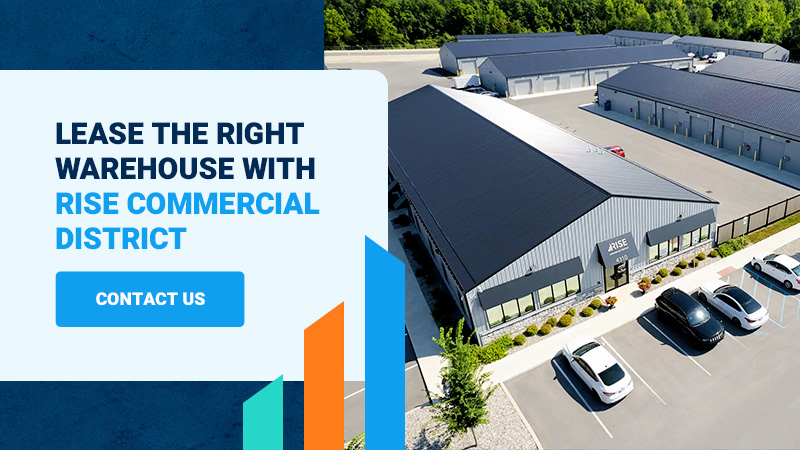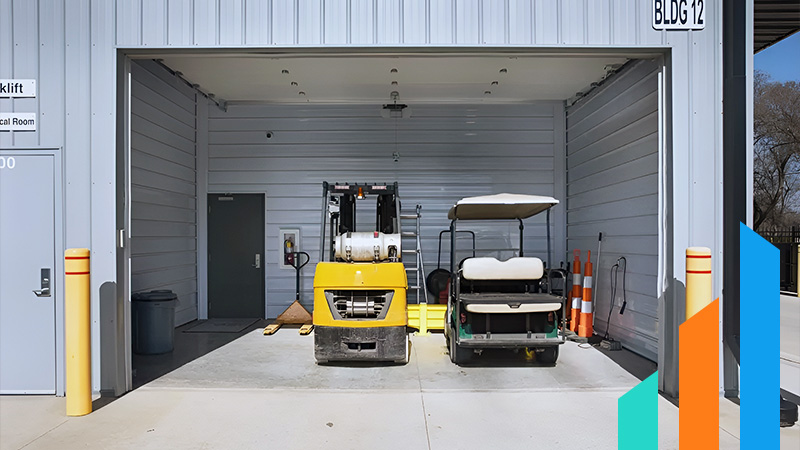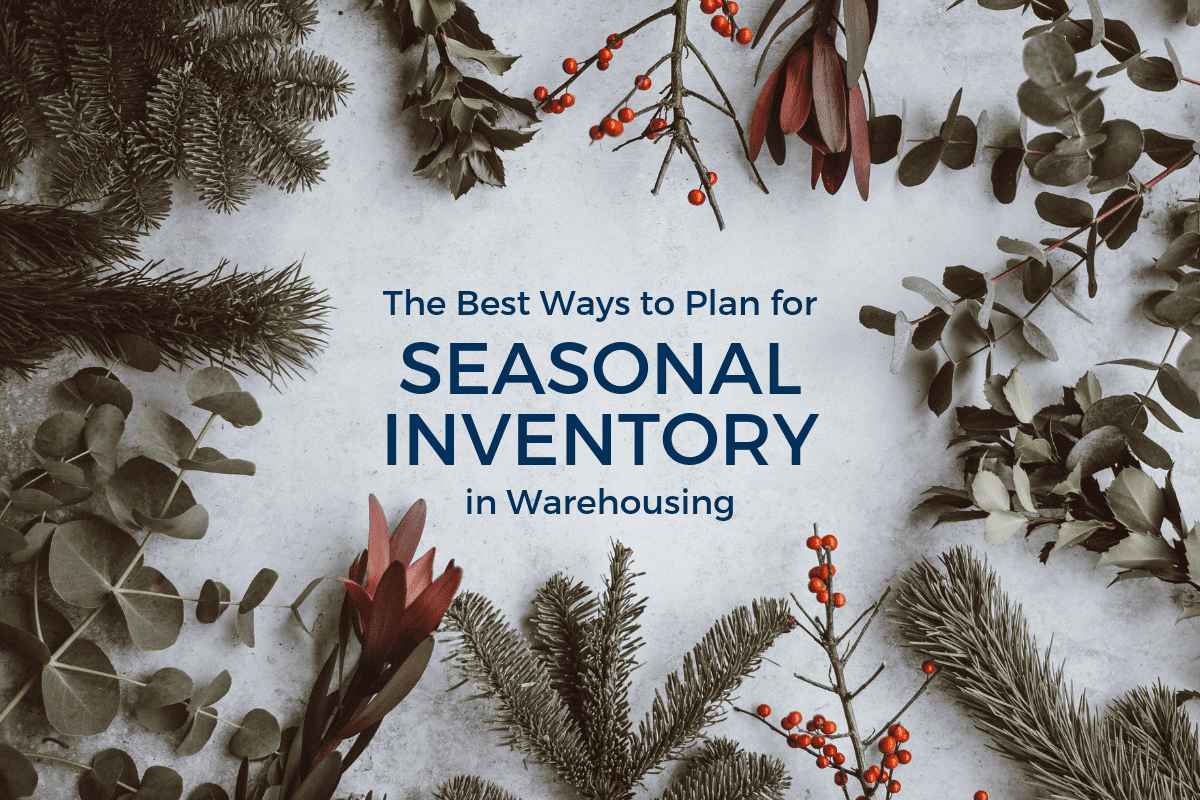- Importance of Warehouse Leasing for Businesses
- Small Business vs. Large Corporation Warehouse Needs
- Benefits & Drawbacks of Leasing a Warehouse for Small Businesses
- Benefits & Drawbacks of Leasing a Warehouse for Large Corporations
- Factors to Consider When Leasing Warehouse Space
- Lease Warehouse Space With RISE Commercial District
- Frequently Asked Questions
Choosing the right warehouse to lease is crucial for businesses of all sizes because it impacts inventory management, operational efficiency and growth potential. Understanding the unique warehousing needs of small businesses versus large corporations can help you make more informed decisions that align with your business goals and market demands.
Importance of Warehouse Leasing for Businesses
Leasing a warehouse is a strategic move for businesses looking to optimize their operations and grow without the extensive costs of purchasing or building a warehouse. Leased warehouses provide centralized storage, helping maintain optimal inventory levels and improving customer satisfaction.
Strategically located warehouses reduce shipping times and costs, helping facilitate market expansion and accurate order fulfillment. Additionally, leased warehouses offer scalability, allowing businesses to adjust storage capacity based on seasonal demands or growth spurts. Leasing a warehouse can enhance inventory management and streamline distribution, contributing to operational efficiency and business success.
Differentiating Small Business vs. Large Corporation Warehouse Needs
Understanding the differences in warehousing requirements for small and large businesses is crucial to selecting the most appropriate leasing solution. Each business size has unique requirements based on its scale of operations, amount of inventory and logistical needs.
The following are common small business warehouse needs:
- Flexibility: Smaller businesses often require more flexible and short-term leases, allowing them to scale as needed.
- Cost effectiveness: Smaller businesses have tighter budgets and less cash flow, making affordability critical.
- Accessibility: Although relevant for all companies, small businesses require a convenient, central location to reduce transport costs.
- Basic amenities: Small businesses typically need fewer warehouse features but require security, climate control and utilities.
Here are some standard large business warehouse needs:
- High capacity: Larger corporations stock an extensive inventory and require additional storage space in bigger warehouses.
- Advanced technology: Many large businesses integrate warehouse management systems (WMS), automation and artificial intelligence (AI) into processes.
- Strategic location: Proximity to transport routes, distribution hubs and markets are crucial, particularly when transporting vast amounts of goods continuously.
- Customization: Large businesses must tailor the layout, features and equipment to their operational needs.
Benefits and Drawbacks of Leasing a Warehouse for Small Businesses
Small businesses can undoubtedly benefit from leased warehouses. However, these also bring unique challenges. By understanding the pros and cons, you can make a more informed decision regarding what aligns with your operational needs and growth plans.
The benefits of warehouse rentals for a small business include:
- Cost savings: Most small businesses must grow financially before purchasing space. This makes short-term leases ideal.
- Flexibility: Most small businesses choose short-term leases, allowing them to adjust storage space based on seasonality and growth.
- Improved efficiency: Choosing a strategically located warehouse to lease streamlines inventory management and distribution and reduces transport costs.
- Scalability: By selecting a short-term lease, you can easily increase or decrease the size of your warehouse as your business grows or market conditions change.
- Professional image: Having well-kept dedicated warehousing improves a small business’s credibility and professional image.
The challenges of warehouse leasing for small businesses include:
- Higher monthly costs: If you choose a short-term lease, you will likely incur slightly higher rates than long-term ones.
- Limited space: A smaller warehouse allows you to store only a limited amount of stock at a time.
- Availability issues: Finding warehouse space in a high-demand area could be challenging, meaning you may need to look somewhere less logistically suitable.
- Initial setup costs: Smaller businesses must budget for security deposits and initial setup, including equipment.
Benefits and Drawbacks of Leasing a Warehouse for Large Corporations
Large corporations often require more extensive warehouse space to accommodate their vast inventory and equipment. Leasing warehouse space can provide several advantages for large businesses. However, it also comes with its own set of challenges that require careful consideration and management.
The benefits of warehouse rentals for a large business include:
- Cost efficiency: If your business chooses a long-term lease, you can usually secure lower monthly rates, leading to substantial cost savings over time.
- Advanced infrastructure: Many warehouse lease options will include several add-ons to ensure the facility remains modern and up to date.
- Strategic locations: Finding a quality warehouse to lease in a central distribution hub can reduce your transport costs and delivery time.
- Customization: A long-term lease typically includes the ability to tailor the warehouse features to your operational needs.
- Scalability: Larger spaces allow you to accommodate more inventory and promote growth. Additionally, without the expense of purchasing a warehouse, you can expand by leasing more spaces.
The challenges of warehouse rentals for large businesses include:
- High initial investment: You will pay a more substantial security deposit for a larger warehouse. Then, you need to customize the warehouse to meet your needs.
- Long-term commitment: As a large business, you will likely take out a long-term lease. Although this offers stability, it does mean less flexibility to adapt to changing markets or needs.
- Complex management: Once you secure your warehouse, managing the operations can be complex and resource-intensive. Try to find a lessor who provides the necessary amenities and add-on services.
- Risk of changing needs: Over time, your chosen warehouse could become obsolete due to changes in your business operations or the market and economy.
Factors to Consider When Leasing Warehouse Space
When deciding on warehouse leasing, you will need to evaluate several key factors to ensure that the space meets your operational needs and aligns with your goals.

The size of the warehouse is the first thing to consider, as it needs to align with current and future storage needs. Selecting a space that is too small can hinder business growth. However, choosing an overly large warehouse can cause unnecessary expenses and unutilized space. Consider the amount of inventory you carry and your expansion plans.
Once you know your warehouse size requirements, you can consider the lease period. The lease period will affect your business’s flexibility and financial commitments. Short-term leases offer ease of scalability but cost more per month. On the other hand, long-term leases promote stability, though they are a more significant commitment and can be less flexible.
The warehouse location is a crucial part of your decision-making, as it impacts the effectiveness and efficiency of your logistics. Assess the area’s transport infrastructure to ensure you can easily reach your customers, suppliers and all transport hubs. Additionally, choose a warehouse that offers easy access for your deliveries and pickups. This means having an efficient and well-designed area for loading and unloading.
Loading docks are one of several facility features you will want to assess. Try to find warehousing that provides office or conference space, climate control, robust security systems and other features you may require.
Lease the Right Warehouse With RISE Commercial District
Now that you better understand the difference between small and large business warehouse rentals, you know how crucial it is to choose the right warehouse lease to optimize your business. At RISE Commercial District, we offer a range of warehouse solutions that provide flexibility and customizable options. We can meet the needs of both small businesses and large corporations.
We offer facilities strategically located across the United States, equipped with advanced amenities and competitive pricing, to efficiently and effectively meet your storage needs. Contact us today to find the perfect warehouse to lease that aligns with your business size, goals and operational needs.

Frequently Asked Questions
How Much Warehouse Space Should Small Businesses Lease?
Small businesses typically require as little as 500 square feet and a maximum of 10,000 square feet. You can start small and scale up as your business grows and you expand your operations. You can determine the perfect size by evaluating your current inventory and forecasted near-term growth.
What Are the Benefits of Leasing Warehouse Space?
Leasing warehouse space eliminates the expensive costs associated with building or purchasing warehouses. Additionally, it provides flexibility and scalability, especially for small businesses looking to expand their operations.
Is Warehouse Rent a Fixed Cost?
Warehouse rent is a fixed business expense that doesn’t fluctuate with changing production or sales volumes.
What Warehouse Amenities Are Best for Small Businesses?
Small businesses can benefit from bundled amenities such as loading docks, forklifts, Wi-Fi and optional office spaces. Multiuse warehouses enable centralized control of business operations.



